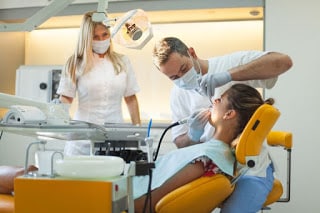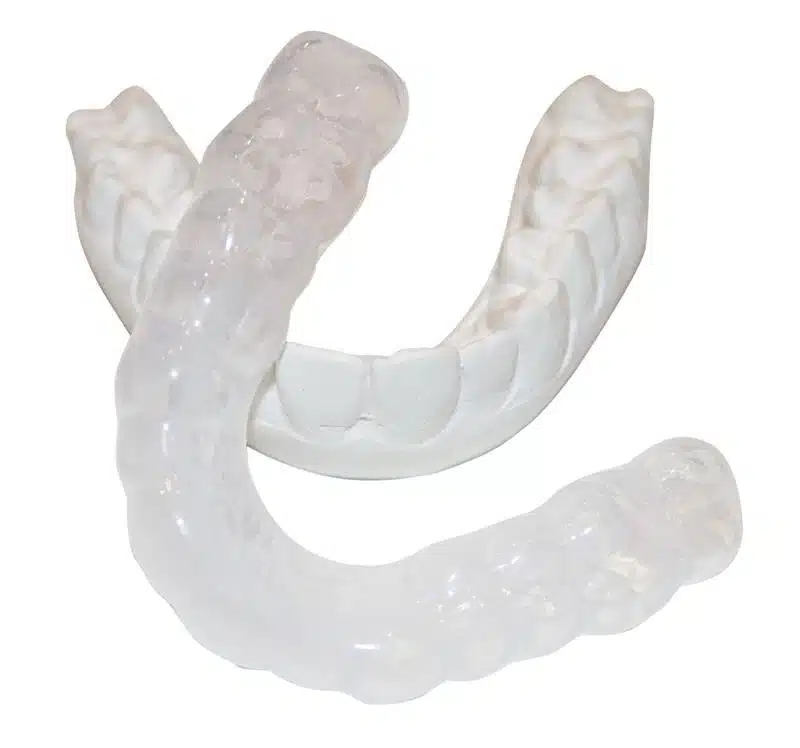Can Dental Hygiene Affect Fertility?
Good oral hygiene doesn’t only make you more kissable—it also may make you more fertile. According to emerging research, dental health may impact how long it takes a woman to conceive. In men, gum disease and tooth decay have been linked to poor semen and sperm health. The possible connection between dental health and fertility applies to both men and women.
During pregnancy, poor oral health is associated with an increased risk of gestational diabetes, preeclampsia, preterm labor, and having low birth weight baby.
Ensuring your teeth and gums are healthy isn’t only important for your fertility—it may also be important for your not-yet-conceived child.
How might dental hygiene impact fertility and a future pregnancy? And, most importantly, what should you be doing to make sure it doesn't negatively affect it?
Periodontal Disease, Gingivitis, and Your Health
Most of the research on fertility and dental health is focused on periodontal disease. Swollen, red, and tender gums are possible signs of periodontal disease. Your dental hygienist is looking for evidence of this when they probe your gums. This process involves taking a dental tool known as a periodontal probe—a thin, long metal pick with a blunted end and measurement indicators—and gently pressing the instrument into the pockets (or spaces) of tissue that exist between the gum and tooth.
Deeper pocket measurements indicate possible periodontal disease.
Periodontal disease is chronic inflammation of the gums, supporting tissues, and jawbone. Left untreated, tooth loss and irreversible jawbone deterioration can occur. Between 1 in 10 people experience severe periodontal disease.
You may also have heard of gingivitis. Over half of adults in the United States have gingivitis.
Gingivitis is a milder form of gum disease, which involves inflammation of the gums but doesn’t lead to bone loss like periodontal disease. However, gingivitis can progress to periodontal disease. Poor oral hygiene can cause gingivitis.
Periodontal disease is associated with a number of health conditions, including heart disease, diabetes, respiratory diseases, and stroke. Women with polycystic ovarian syndrome (PCOS) and endometriosis and men with erectile dysfunction are more likely to be diagnosed with the periodontal disease than the general population.
Dental Health and Male Fertility
Several studies have found that men with poor oral health—whether from excessive and untreated cavities or periodontal disease—are more likely to face male factor infertility, especially when compared to men with normal sperm health.
Low sperm count, poor sperm motility (that’s how the sperm swim), abnormal sperm morphology (that’s the shape of sperm), and evidence of bacterial infection in the semen are associated with various dental and oral health problems. While erectile dysfunction isn’t a common sign of male infertility (most men with infertility have few to none visible symptoms), those who do experience erectile dysfunction are more likely to have gum disease.
A handful of studies has found that the treatment of cavities and dental infections did result in improved semen health. However, this is an area that needs more research, and not all studies found a direct improvement after dental treatment.
What does poor oral health have to do with your sperm?
There are a few theories.
First, cavities, tooth infections, and gum disease all involve high levels of bacterial growth in the mouth. (Bacteria grow inside cavities and are also responsible for gum disease.) Elevated levels of bacteria in the mouth may lead to increased levels of bacteria in other areas of the body.
Bacteriospermia is when a bacterial infection (or evidence of infection) is found in semen. In a semen analysis, an abnormally high white blood cell count would indicate possible bacteriospermia. Studies have found that poor oral health is associated with an increased risk of bacteriospermia. Some research has found that treating cavities and oral infection has lead to a reduction or elimination of bacteriospermia.
Secondly, when your body is fighting an infection (and tooth decay is an infection), your body’s immunological response may go into overdrive. The infection and immunological response may be concentrated in the mouth, but this can still result in increased inflammation throughout the body. This, in turn, may lead to the immune system attacking healthy, non-threaten cells—like developing sperm cells.
Thirdly, it’s possible that risk factors for poor oral health are also risk factors for infertility. For example, let's consider smoking. Smokers are at an increased risk of developing periodontal disease and smoking may negatively impact infertility.
Two Extra Months to Conceive in Women With Periodontal Disease
The majority of the research on dental health and fertility has been done in men. However, scientists are beginning to look at how female fertility may be impacted by oral health.
In a study of 3,737 pregnant women in Australia, researchers examined whether the periodontal disease was associated with more difficulty conceiving. Of the women surveyed, they only included those who had planned pregnancies. They also excluded women who conceived with fertility treatments. (Therefore, we can’t determine how periodontal disease would impact women with diagnosed infertility from this study.)
Women with the periodontal disease took an average of 7.1 months to get pregnant. However, women without periodontal disease spent on average 5 months trying to get pregnant. Periodontal disease increased the time to conception by two months.
It’s important to point out that this statistically significant increase in time-to-conception only was found in non-Caucasian women. In Caucasian women, there was also an increase in time to conception, but it was not considered to be statistically significant.
Why might this be? Ethnicity is a known risk factor for periodontal disease, along with other genetic factors. It is possible that non-Caucasian women have immune systems that are more susceptible to periodontal disease, and are also more likely to deal with the related health consequences of gum disease.
Periodontal Disease and Reduced Fertility?
This is an area that needs much more research before any conclusions can be made. Does periodontal disease cause other health problems? Or do the health problems cause periodontal disease? Or is something else responsible for both? We just don’t know.
However, there are theories. One possible connection between poor oral health and female fertility is the immunological connection. (Similar to the theory for male fertility problems and periodontal disease.) Periodontal disease may cause the immune system to be overly reactive. Or, it may be that an overly-reactive immune system may increase the risk of developing periodontal disease.
Reproductive immunology studies the possible connection between the body’s immune system and how it reacts to embryo implantation and development. Women with over-reactive immune systems have been found to be at an increased risk of infertility, miscarriage, and embryo implantation failure during IVF treatment.
Common causes of female infertility—specifically endometriosis and polycystic ovarian syndrome—are also associated with an increased risk of periodontal disease.
According to a study of just over 4,000 women, those with self-reported endometriosis were 57 percent more likely to have gingivitis or periodontal disease when compared to women without endometriosis. Researchers theorize that immune dysregulation may be the connection.
In a small study, researchers found that women with PCOS were more likely to have gingivitis when compared to women without PCOS. What’s especially interesting about this study is they did not include women who were smokers, diabetics, or obese.
This indicated that something about PCOS itself—and not related risk factors—causes an increased risk of gum disease.
What to Do to Improve Your Dental Health (and Maybe Your Fertility)
Whether infertility is a risk factor for periodontal disease or periodontal disease is a risk factor for infertility, it’s worth your time and energy to take care of your dental health. This is especially true given the research showing that treatment of cavities and gum disease may improve male fertility and pregnancy outcomes.
Your risk of developing periodontal disease depends on a variety of factors, including genetics, general health habits, the presence of other diseases, and oral hygiene. You don’t really have control over your genetics, but you do have control over your health habits and oral hygiene practices.
Here’s what you can do to reduce your risk of gum disease, improve your dental health, and (possibly) improve your fertility.
Get regular dental cleanings. When you’re already struggling to get to all your fertility testing and treatment appointments, it can be tempting to cancel or postpone your dental cleanings. Don’t do it.
Regular dental cleanings are key to maintaining healthy gums and oral health. Regular check-ups are also the only way to catch cavities before they become serious. By the time you’re experiencing pain, the tooth infection is well developed.
How often do you need to be at the dentist? At least once every six months, and more frequently (every three months) if you have periodontal disease.
Ask your dentist or dental hygienist for a comprehensive review of your gum health. Honestly, this is something your dental team should be doing already. However, some offices schedule appointments so close together that a comprehensive review of your dental health isn’t possible. Make sure your dental hygienist knows this is something you care about.
Get those cavities fixed. It’s not enough to just get your teeth cleaned. If your dentist finds evidence of tooth decay, don’t delay in getting things taken care of.
Brush your teeth twice a day. This may seem basic, but not everyone makes sure it happens. Every morning after you wake up and before you go to bed, give your teeth and gums a good brushing.
Floss! Regular flossing is vital to healthy gums. “You can brush every day, twice a day, and still have very inflamed gums and develop gingivitis or periodontal disease if you don’t floss,” explains Jason Olson, registered dental hygienist.
Flossing isn’t always enough, however. This is especially true for those who have already developed gum disease. You may benefit from using a water pick or interdental brushes. Talk to your dental hygienist about the best way for you to clean your teeth. Also, ask for them to demonstrate proper flossing technique. Most people don’t floss effectively.
Rinse with water after you eat. You don’t need to brush after every meal, but rinsing helps. “Rinsing with water after you eat—or after you drink something that isn’t water—will reduce gum inflammation and your risk for cavities,” explains Olson.
If your dentist recommends more frequent cleanings, schedule them. Those with periodontal disease require more frequent visits to the dentist. Instead of every six months, cleanings every three months are recommended.
If you have deep pocketing of your gum tissue, it’s not possible for you to keep your teeth clean at home. Bacteria build up inside those deep pockets, and that’s what leads to the jawbone deterioration and tooth loss from periodontal disease.
Schedule fertility treatments at least a few weeks after deep dental cleanings. Preliminary research has found that deep dental cleanings—specifically cleanings intended to treat periodontal disease—can cause a temporary increase in immunological activity. Researchers worry this may negatively impact fertility treatment success.
This is all still theory. However, if you can, try to have a three or more week buffer between your cleanings and your fertility treatment cycle.
If you smoke, make a commitment to quit. Smoking both increases your risk of developing periodontal disease and harms fertility. This is true for both men and women.
Talk to your doctor about dental X-rays during the two-week-wait. You know you’re not supposed to have X-rays when you’re pregnant. But does that apply during the two-week-wait (the days between ovulation and your expected period)? Most OB/GYNs say dental X-rays during this time are safe. Still, talk to your doctor if you’re concerned.
Sources:
Interview: Jason Olson, RDH. April 5th, 2017.
Hart R1, Doherty DA, Pennell CE, Newnham IA, Newnham JP. “Periodontal disease: a potentially modifiable risk factor limiting conception.” Hum Reprod. 2012 May;27(5):1332-42. doi: 10.1093/humrep/des034. Epub 2012 Feb 22.
Kellesarian SV1, Yunker M2, Malmstrom H2, Almas K3, Romanos GE4, Javed F2. “Male Infertility and Dental Health Status: A Systematic Review.” Am J Mens Health. 2016 Jun 23. pii: 1557988316655529. [Epub ahead of print]
Nwhator S1, Opeodu O2, Ayanbadejo P3, Umeizudike K3, Olamijulo J4, Alade G3, Agbelusi G3, Arowojolu M2, Sorsa T5. “Could periodontitis affect time to conception?” Ann Med Health Sci Res. 2014 Sep;4(5):817-22. doi: 10.4103/2141-9248.141567.
Nwhator SO1, Umeizudike KA2, Ayanbadejo PO3, Opeodu OI4, Olamijulo JA5, Sorsa T6. “Another reason for impeccable oral hygiene: oral hygiene-sperm count link.” J Contemp Dent Pract. 2014 May 1;15(3):352-8.








